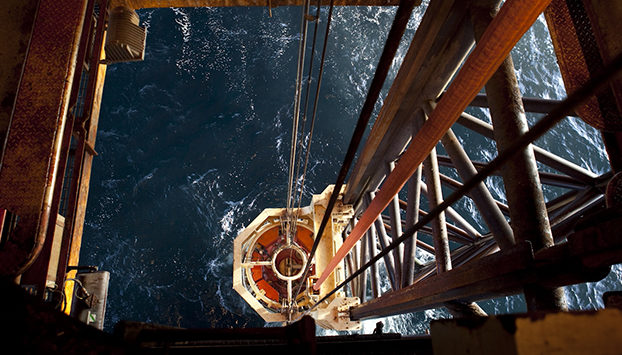
The speed with which the North Sea’s prospects have become engulfed in crisis and doom-laden predictions has taken the world, and not just our own small corner of it, by surprise.
A significant drop in the oil price was predicted by all responsible observers – the exception, of course, being the Scottish Government, which sought to make voters believe in a fool’s paradise of rising oil revenues for its own narrow purposes.
For everyone else, the reality of a lower-price environment was anticipated, driven by the extraordinary impact of shale gas and oil in the US, which has almost turned the world’s biggest importer of oil into an exporter.
That is a phenomenon of historic proportions which was bound to have a huge impact on world markets.
Less widely predicted was the determination of Saudi Arabia to counter this threat to its revenues by turning on the taps and keeping them flowing regardless of the short-term impact on price.
That approach is the difference between a $90 a barrel problem and a $60 a barrel crisis. With some predicting that the price will go much lower before it starts to rise again, we really are in uncharted waters of uncertainty.
That doesn’t mean the North Sea industry is “on the verge of collapse” but it certainly points to the need for urgent remedial action, as OGUK CEO Malcolm Webb explains on pages 18 and 19.
The impacts are already being felt in terms of investment decisions, delayed projects and also terms and conditions for those who work at the sharp end of the industry.
Of course, there is always the suspicion that, for some employers, adversity brings opportunity!
But if ever there was a time for everyone with a stake in the North Sea industry to sing from the same song-sheet, this is surely it.
There is no doubt that the industry and particular local economies, especially Aberdeen’s, will suffer in the short term. But the question of degree is critical.
What goes down comes back up and that is a rule which certainly applies to the price of oil. The current problem is one of timescale and the further the price goes down, the longer the recovery period is likely to be. That is the challenge of uncertainty that must now be addressed and managed at both national and local levels.
Aberdeen City Council deserves credit for taking the initiative in bringing together key decision-makers with a stake in the industry for a “summit”.
There is a real need for a consensual view on both the scale of the problem and the measures that can reasonably be taken by each of the participants.
There will inevitably be a focus on the tax regime and what additional measures can be taken in the timescale available, bearing in mind that there will be a General Election in May. It must be made clear to Whitehall that this is not something which can be kicked into touch until that contest is settled.
The Treasury will resist what they might regard as panic measures and will be alert to the possibility that the industry is overstating its case, as it has sometimes been known to do in the past. That is why it so important that the case presented by the industry has advance buy-in from all quarters.
The willingness of the Secretary of State for Scotland, Alistair Carmichael, to participate in the Aberdeen summit ensures UK Government engagement and that is important. It would also be good to see the other major oil and gas centres in the UK represented, so that the political message is not just coming from Scotland.
At the moment, there is great uncertainty among the workforce about what the future holds.
This was reflected in the statement, just before Christmas, from Jake Malloy of the RMT union who said that reports were reaching them of operators already changing terms and conditions in order to cuts costs. He expressed concerns about the impact on numbers employed and also the safety culture as hours of work increase and experienced men leave the industry.
All of these concerns are valid and must be taken seriously. Unfortunately, Malloy has historical precedents to point to, where a heavy price has been paid for cost-cutting.
He was concerned that the hard-pressed Health and Safety Executive, already stretched through implementation of the EU Offshore Safety Directive, will find it difficult to keep up with the issues that rise from cost-cutting and failure to invest as planned in ageing infrastructure. It is a timely warning.
I am tempted to hark back to the late 1990s when the price of oil went to below $10 a barrel leading to a similar sense of crisis and the emergence of a counter-strategy, agreed by government and industry through PILOT.
The price recovered more quickly than anticipated but the agreed measures still proved extremely useful to the industry, going forward.
The same approach should be adopted now. The primary aim should be to protect and encourage investment in the current climate.
The UK Government should accept that this is an exceptional situation which requires exceptional short-term measures – not as a cost but as an investment in the future of an industry that continues to give so much to the British economy.
This is a time for cool heads and urgent action on the basis of consensus about what requires to be done. Predictions of doom are of no use to anyone.
The North Sea industry is still going to be around for a long time to come. The challenge now is to manage a period of difficulty in a way that minimises short-term damage and does nothing to close down options and opportunities for the future.
Recommended for you
